|
Traffic sucks. Luckily, smart people are looking into making cities smarter and reducing congestion.
Rapid Flow Technologies was spun out of Carnegie Mellon University with the goal of introducing new Intelligent Transportation Systems technologies into the marketplace. Rapid Flow was created to commercialize the Surtrac adaptive traffic signal control technology developed in the Robotics Institute at Carnegie Mellon. I spoke with CEO Griffin Schultz, who was brought in to lead business development efforts for the young startup. Griffin has an MBA from The Wharton School at UPenn and has previously worked with successful tech startups, as the Assistant Deputy Mayor for the City of Philadelphia, and other offices in state and federal government. Never miss one of our best episodes by subscribing to the Newsletter. If you liked this interview, check out our episode Kevin Miller where we discuss artificial intelligence disrupting the world of contracts or our episode with Mark DeSantis where we discuss maintaining road infrastructure with cheap sensors and AI.
Griffin’s Challenge; Read about artificial intelligence.
Books Mentioned Origin by Dan Brown Life 3.0 Being Human in the Age of AI by Max Tegmark The Power Broker: Robert Moses and the Fall of New York by Robert A. Caro Connect with Griffin Website info@rapidflowtech.com
Underwritten by Piper Creative
Piper Creative creates podcasts, vlogs, and videos for companies. Our clients become better storytellers. How? Click here and Learn more. We work with Fortune 500s, medium-sized companies, and entrepreneurs. Sign up for one of Piper’s weekly newsletters. We curate links to Expand your Mind, Fill your Heart, and Grow your Tribe. Follow Piper as we grow YouTube Subscribe on iTunes | Stitcher | Overcast | PodBay
4 Comments
342 Transitioning from Management Consulting to a Sports Technology Startup w/ Norma Nieto9/20/2018
Norma Nieto was the President of PIVOT, a wholly-owned subsidiary of Impellia through mid-2017, and is currently working in multiple capacities for Impellia as a consultant. She currently has her own strategy and analytics consulting company, N-Squared Strategic Consulting, which helps clients harness the power of data and analytics to develop innovative strategies.
Impellia is a sports software and sensor-based technology company co-founded by former Pittsburgh Steelers QB Charlie Batch. We discuss transitioning from a large corporation to a scrappy startup. Never miss one of our best episodes by subscribing to the newsletter. Norma’s Challenge; Don’t be afraid of a startup. Change can bring someone great out of you. Book Recommendation Lead and Disrupt: How to Solve the Innovator's Dilemma by Charles A. O'Reilly III & Michael Tushman Connect with Norma Website norma.b.nieto@gmail.com If you liked this interview, check out episode 338 with Courtney Williamson where we discuss developing a prototype for a new invention, scaling a medical device company, and getting approved by regulators. Underwritten by Piper Creative A digital agency that provides strategy, delivery, and analysis specializing in a few key service offerings. Documentary-as-a-Service (Vlogging 2.0) Instagram Content Production & Account Building Podcast Production, Strategy Consulting, and Guest Acquisition If you aren’t creating or curating content regularly, your clients and customers might forget you’re open for business. YouTube Subscribe on iTunes | Stitcher | Overcast | PodBay
Idea Foundry has invested in over 200 companies and generated $1B in direct economic impact for the region. The Pittsburgh-based, non-profit economic development organization focsues on creating living-wage, high-opportunity jobs by investing in and working alongside entrepreneurs to grow.
Previously, Mr. Matesic was Chief Executive Officer for two start-up companies and Chief Financial Officer for MetalSite, Inc., participating in the rapid growth of the company and public registration process. We discuss investing in businesses, where Idea Foundry gets its funding, and how Mike & his team help companies grow. Never miss one of our best episodes by subscribing to the newsletter. Mike’s Challenge; Ask yourself “What is it enough?” If you don’t know, you’ll never stop or change. Connect with Mike Website If you liked this interview, check out previous episodes with Idea Foundry portfolio companies like Ian Rosenberger, Anthony Vennare, Ryan Gayman, Josie Cellone, and John Thornton.
Underwritten by Piper Creative
Piper Creative creates podcasts, vlogs, and videos for companies. Our clients become better storytellers. How? Click here and Learn more. We work with Fortune 500s, medium-sized companies, and entrepreneurs. Sign up for one of Piper’s weekly newsletters. We curate links to Expand your Mind, Fill your Heart, and Grow your Tribe. Follow Piper as we grow YouTube Subscribe on iTunes | Stitcher | Overcast | PodBay
Craig Markovitz co-founded Blue Belt Technologies, a spinoff from the Robotics Institute at CMU, in 2003 and thirteen years later was a key member of the deal team that led to a $275,000,000 acquisition. During his years in business, Craig has launched companies, raised capital, and managed operations in businesses spanning from pre revenue and 18 employees to multi-million in revenue and 150 employees.
Today, he is an Entrepreneur-in-Residence in the Swartz Center for Entrepreneurship and an Assistant Teaching Professor of Entrepreneurship in the Tepper School of Business at Carnegie Mellon University. We discuss his experience building a team, his thoughts on fundraising, and touch on the peculiar position of deciding what to do after your company is acquired. If you liked this interview, check out episode 303 with Luke Skurman where we discuss building a tech company in Pittsburgh, raising a Series A, and the challenges of building a team. Never miss one of our best episodes by subscribing to the newsletter.
Underwritten by Piper Creative
Piper Creative creates podcasts, vlogs, and videos for companies. Our clients become better storytellers. How? Click here and Learn more. We work with Fortune 500s, medium-sized companies, and entrepreneurs. Sign up for one of Piper’s weekly newsletters. We curate links to Expand your Mind, Fill your Heart, and Grow your Tribe. Follow Piper as we grow YouTube Subscribe on iTunes | Stitcher | Overcast | PodBay Watson: I want to start off by having you tell folks a little bit about your background and the big kind of pillar moment was around Blue Belt Technologies of which you were CEO for seven years. So can you talk a little bit to start things off what was blue belts business and what did that look like? Markovitz: Sure. So a quick bit about me. I'm a Pittsburgher native. Born and raised and left after college. Spent some time meandering through the United States, living in Chicago, living in Philadelphia, trying, different careers and industries made my way back to Pittsburgh about 16 years ago, and, developed a relationship with some very smart researchers and Instructors here at Carnegie Mellon university, and they brought me into the conversation because they thought the technology was interesting and compelling and had potential applicability out in industry. In particular, in the medical field. And they were working on this new concept with this PhD student and brought me in as the business side of the program. My background was in venture capital and banking, technology transfer and commercialization of technology. And the three of us put our heads together and recognized that this technology had potential. We licensed it from the university and started a company which became blue belt technology. Watson: And that was a really big success in that rollout. It's a concept that was pretty foreign to me even a year or so ago, but this idea of bringing technology out of the university, finding that partnership is something that you really have a specialty in now because of those experiences. Can you talk a little bit more about what the negotiating process looks like with that? Or if that's a pretty standard process with major universities? Markovitz: Sure. We can absolutely talk about how to negotiate technology, but let me start a little earlier on in the process. So there is an entire industry called the tech transfer industry, which revolves around taking technologies and innovations invented in universities in their research labs, funded by government research and bringing those technologies out into market for the public good. That's the term that is used for sort of the emphasis for emphasis, for technology transfer. And there are, each major research university has a technology transfer office that markets technologies available for license. And what that means is researchers work in their labs and they get a grant and they evolve technologies or a concept. And it is determined that there's something novel there, potentially something valuable and the universities are permitted to take these innovations, these ideas of these new technologies and capitalize on their potential. And they do that through the process called technology transfer and that can involve licensing technology. So you can take the core capability and intellectual property rights of a technology and license it to a company and they have the ability exclusively or not exclusively. To turn it into a product or a service or something, the company can make money on. And as a by-product, the university gets a royalty or a piece of that revenue attributed to that technology. In addition, technology transfer allows for universities to spin technologies out, right. And actually start companies or actually participate. As an equity player as an owner in a startup company. And that's what blue belt was. So Blue Belt Technology technically was owned by Carnegie Mellon. It was invented here. It was invented, via support from various government research organizations and sponsored research from companies. And we had the ability to walk into the technology transfer office in exclusively licensed rights to that technology to turn it into a company. And that's what we did. And that's really what tech technology transfer is. It's the opportunity for folks in industry. To take advantage of technology that's been developed and evolved. And in some cases has millions of dollars, and research behind it and try to turn into a business, trying to turn into a commercial enterprise that can make money. Watson: Is it as simple as paying whatever fee is deemed appropriate for the use of the technology, or is there a degree of evaluating the person coming in and there? Ability or their viability to actually turn it into a successful business. How much of that is part of the calculus? Markovitz: Sure. So many universities have a standard template that has a set royalty rate, a set ownership position, potentially. If it's a startup company, oftentimes the entrepreneur or the licensing company will have to reimburse the university for expenses that they've incurred to date many times there's milestones that could involve minimum annual payments or payments based on accomplishment of milestones. So universities have worked very hard over the years to try and make the process as simple as it can be. And you start in many cases with the template and you can work from there. And obviously there's points of negotiation. Throughout the discussion, but we could hang up here and walk across the street to the tech transfer office. Find a technology that you thought was interesting. Take the university or Carnegie Mellon University standard startup deal and walk out the door. With rights to technology, you can start a company around, so they try to make it simple, but they are obligated to, to vet the entrepreneurs or to vet the potential licensees of the technology to make sure that they're capable and that they are actually able to commercialize the technology. Again, the university's obligation is to make sure that the technology is available for public good, and they have to vet and evaluate the folks that are going to take those rights to determine if they're capable or not. I mean, it's a really interesting opportunity for folks, particularly those that are interested in entrepreneurship or starting their own company, or becoming exposed to new technologies and innovations. And I like to tell people that although blue belt, I was a cofounder of Blue Belt, I wasn't smart enough to come up with the idea. It was someone else's idea that we went in and licensed and capitalized on. Now that inventor, that PhD student who came up with the idea and tested it and validated it, he participated in the process. So he was rewarded. As we were successful he was successful. But, you know, entrepreneurship means a lot of different things to many different people, and it doesn't just follow the path of coming up with an idea and executing and building a business. There's opportunities like going to universities, finding technology that's relevant to your expertise and experience building a company or an opportunity around that. And you're every bit an entrepreneur as, you know, someone that started an idea from scratch. Watson: Certainly. And while you may say that you weren't smart enough to come up with the idea that you were not only smart enough to take it to an exit of over a quarter million dollars, but you're also smart enough to go looking for it and be prepared to take advantage of an opportunity like this. So what were you doing before outside of being a native Pittsburgher that prepared you for an endeavor like blue belt? Markovitz: Right. So before blue belt, I was actually working for a venture capital firm. I was in Philadelphia and it was an early stage technology focused venture fund that was looking for new ideas and innovations. And my job in Philly was to find new, cool ideas, primarily in university campuses. Talk to vendors, go to the tech transfer offices network, like crazy and see where new innovations and opportunities may come from. And what that did is it, although I'm not a technologist, I'm not a clinician, I have an MBA. I have a general management degree in my undergraduate work. I was exposed to lots of different kinds of technology and some really smart, innovative, and creative people and was able to. To understand and grasp the concept and try to help think about opportunities to commercialize technology or capitalize on the potential, without being the scientist or the PhD or the MD who's actually able to come up with the idea, test it and validate it. So my background before starting blue belt was varied in terms of looking at different kinds of technologies and different stages of development, having the perspective of an investor, trying to see what opportunities can actually generate profits for the company. And as a consequence, for their investors. Watson: With that background in venture capital and having that perspective of being on the investor side of the table, in your subsequent endeavors, whether that's in Blue Belt or the advice that you're giving to students and other members here at the Swartz center for entrepreneurship, what advice do you give them in terms of the route that they would take for funding and consideration that they should make during that part of the process? Markovitz: Sure. So, fundraising is a complicated topic and it can mean lots of things, depending on where your company is, where you are as an individual, the kind of network that you've built, the industry that you're focusing. And so the first piece of advice I give folks is to really understand your value proposition, right? What, what exactly are you promoting? Investors really care about one thing. Investors care about minimizing their risk and maximizing their return. So if you can present your opportunity in such a way that your value proposition, your opportunity for investment resonates with the investor, right? You know, you can check all their boxes, whatever their priorities are, whatever industry stage of development, amount of capital. You're trying to raise their timeline, their portfolio mix in terms of the kind of companies and opportunities that they wanted to invest in. As long as you can satisfy those requirements, you'll be in the ballpark. The mistake people make is they indiscriminately network and they try to talk to funding sources that really aren't appropriate. So if you're an early stage company or you're emerging technology, and you're trying to just get off the ground, I'm going and talking to a very large venture capital firm that invests in later stage deals is a waste of everyone's time. So take the time to really understand and qualify your investor leads, right? Are they appropriate in terms of the amount of funding that they can provide to you? Do they historically invest in companies like yours from a stage of development and opportunity perspective? So it's important to do your homework. It's important to make sure that the folks that you talk to, your story resonate with what they're interested in. Watson: And they're usually pretty forthright in terms of where they're looking to get in what type of deals that they're looking for, because they've gone through that experience of having their time wasted. Markovitz: Sure. They will promote. What they're interested in. Some investment firms are interested in sort of series A, internet based technology opportunities, right? So they're not interested in an earlier stage deals and I shouldn't later, they just, they're not interested in a healthcare deal for instance, where you have to deal with the FDA or reimbursement or other complications around that field. And more often than not, the a potential investor was very clear about what they're interested in and what they're interested in looking for. So, it's important to do your homework. It's important to, to under once you get through. So by the time you go and talk to investors, you really have to have your story straight, or you have to be able to clearly articulate, you know, the problem that you've identified and how your solution is better and meaningful and how there's opportunities to promote your solution to your customer base, such that they'll pay you for it. And that there are enough customers where the market size is big enough and meaningful enough for all this to be worthwhile and that you can generate a business model that allows you to be profitable, right? There are a number of steps that you take in the entrepreneurial process to sort of validate your idea, talking to potential customers, understanding the competition. There's a laundry list for how to think about an idea to determine whether or not it in fact has the opportunity to launch as a company and whether you could gather investment, you know, other people's money. So it was hard to gather other people's money and then execute right. And then try to be successful. So that's really what I try to tell folks is, you know, make sure you do your homework, make sure that you can clearly articulate why your opportunity is compelling and that you're talking to the folks that are interested in what you had to say. Watson: What did that story look like when you were walking into boardrooms for Blue Belt and what was that solicitation? Markovitz: Sure. So, this is the classic example of not practicing what you preach, right? No, actually, we took a different approach. So traditionally, so you bring a technology out of university and you perhaps find an angel or an early stage investor group that'll put some money behind you, just sort of. Kind of do some early proof of concept to validate the idea, to check all the, the general, I don't know, necessarily boxes around the potential of the opportunity. And then you talk to additional institutional investors and try to raise a series A and then he gets a series B and then you kind of work your way towards an exit. But we were in an interesting spot back in, 2002, 2003. I wasn't a lot of infrastructure in Pittsburgh to support medical technology companies. And so we had to go about it a little differently. So rather than sort of building a pitch deck and going off and trying to talk to institutional investors or folks that had experienced investing in the medical technology space, we bootstrapped the business. So we, were able to get grants from the, from the government, national Institute of health. They have an earmark program that provides bits of capital to start up companies, to help them sort of validate their ideas and to get their legs under them, as they move forward through the commercialization process. And we were able to secure millions of dollars, through that piece. We were also successful in getting economic development. So there were a couple of organizations here in Western Pennsylvania. Innovation works in the Pittsburgh Life Sciences Greenhouse, specifically, that invested in us. So they put money in Blue Belt, in the form of a convertible note. So it went in as debt with the expectation that it would convert to equity ownership at some point down the road as the company evolved. And, we also were able to establish relationships with some corporate partners. So we were able to gather essentially sponsored research grants from, from big companies and they put some money in because they were so interested in the potential of the technology. And they were so intrigued by the capability of the team that we had put together that they were interested in and just sort of keeping an eye on us and funding us and fits and starts to see where this technology could go. So by the time that we were appropriate and ready to reach out to more formal institutional investors to raise a series a, we were about six years into the company and we had probably raised about $8 million through all these creative, different ideas. We were borrow and stealing our way, to relevance. And so between the, the grants and the economic development. And some sponsored research from interested parties in the, in the corporate world, we were able to remove enough risk and prove the base capability, the technology and its potential to then go out and talk to more formal sort of series a institutional investors. And, that was again, that was six years after we started the company. And then we did that. We were successful in securing an eight round. And, once we did that, we again took another nontraditional path. We instead of progressing into a B round, we actually did a deal with a private equity firm in 2010, where we sold a majority of the business to a private equity firm in New York and recapitalized the company and continue down our journey to try and make Blue Belt something that was valuable and relevant in the marketplace. And that set us on our path to the acquisition, which happened in early 2016. Watson: Now, one of the things that I always wonder, there's this kind of tension between these two extremes in a lot of entrepreneurial endeavors, which is you're in the weeds, your just trying to figure things out day by day. There's a ton of, you know, small little problems that need to be solved. But then on the meta level, you have a vision of where you're going. You know, you begin with the end in mind, whether that's an acquisition or an exit of some form or another, as you're thinking about the partners that you're bringing in, there's a little bit of, you know, we need to fund the business. We're going to take what we can get. But there's also a degree of, we need the right partners in place who will be the right people on our side of the table when the eventual acquisition comes or something to that effect. Was that part of the calculus of who you were connecting with or was it much more like we just need someone to, you know, line up with us? Markovitz: Right. So the question is, how desperate were we? Right? How far are we willing to go to establish those relationships and bring that early-stage capital? Watson: Yeah, it could be desperation, but it could also just be like patience, like, if the barn isn't about to burn down, you don't necessarily need the bucket of water, but you do want to have like some sort of balance between those two. Markovitz: Sure. But I'll touch on something that you mentioned earlier, right? So the day-to-day right. Sort of the monotony of trying to get your technology ready for prime time and make sure that the company's moving forward and we're checking all the boxes on the issues that we need to address, right? Whether it's from an operational standpoint or an intellectual property standpoint and down the road. And what was really critical to our success was the culture and the team and Blue Belt consisted of an exceptional group of folks that were committed and passionate and extraordinarily talented. Right? And so the number one reason, in my opinion, that blue belt succeeded was. Due to the team. We had folks that, you know, sacrifice, they sacrifice career opportunities. Other places, they took less money to come and join blue belt. We had some very lean years and we didn't lose a single person. They rolled up their sleeves and helped us get through those lean years. And there's all sorts of, of antidotes that we have about that. But, we had extraordinarily low turnover and we had people that did whatever it took, right. There was no such thing as that's not my job. We had mechanical engineers helping the software engineers, and we had roboticists on the road helping our service folks with installations in service of our robotic platforms that were deployed in the field and having the assurance that the day-to-day sort of the necessary blocking and tackling to build a business and to be successful was executed flawlessly and exceptionally by an extraordinary group of people that are still with the company. So the company was sold to a large multinational medical device company, and most of the folks are still there. And they're so passionate about what they've built, that they want to see it through. And so that, that was a, you know, a benefit of, of what we built, and the kinds of people that we were able to fortunately attract and stay enthusiastic about the business. So, so that part of your question, I think, is answered by you're judged by the company you keep. And we had, again, extraordinary people, very committed and passionate to making sure Bluebell was successful despite all the trials and tribulations. And that has allowed us to, to continue to make progress. And the second part of your question is really insightful because in some instances you can establish relationships with folks that could make you toxic to others, right? So if you're in a brutally competitive industry and you establish some sort of partnership or relationship with a company, it may not be worth it because regardless of what the benefits are for your company in the, in the near term, longterm you could be closing doors, right? Minimizing options and opportunities to really help you accomplish your ultimate goal, whatever that may be. And we were very sensitive and aware of that. And, and we had a good board of directors and good advisors that helped us make sure that the relationships we were establishing with folks were relevant and valuable and allowed us to continue to execute and accomplish our goals, but we're not irreversible. All right. So we wanted to make sure that we were not in a situation where if somebody wanted to come in and buy our company and have exclusivity across the board for everything that we were able to offer. That there were no overhanging obligations that would prevent us from doing so. And so we were very careful and sensitive to how we structure deals, that kind of promises that we made the kinds of relationships that we established with people. So we wanted to keep as many options open as we could. And in some instances we had to say, no, there were some companies or some investors that really asked for a lot. And we had to do that cost benefit analysis. We'd grade advisors, our attorneys were exceptional, our accountants, our board members, and we would vet these opportunities and figure out if it made sense for the company. And when we weren't perfect, we made plenty of mistakes that we had to go back and repair, but ultimately at the end of the day, the decisions that we made, allowed the company to, progress and to become more valuable and more relevant in the space and ultimately set us up to, get to where we want it to be. Watson: Did you have an earn-out associated with the acquisition? Markovitz: We have an earn-out associated with the acquisition. So, no. So we had, It was a cash deal. But there's hold back right there in the way that oftentimes these deals are structured, there's really no mechanism for an acquire to be a hundred percent certain of what they're buying. Right. It could be things come out of the woodwork down the road. And so oftentimes what an acquire will do is I'll hold back a certain portion of the capital to ensure that there's no unforeseen issues. And at that time, that those types of hold backs are called or not are usually time-driven. They're not milestone or typically when you talk about an earn-out that's based on milestones, right? So you buy a company in a certain state and you want to see its revenue increase, or you want to see its patent portfolio increase or whatever variables you put in play to make sure that the company is progressing and getting more valuable and doing what you thought it was going to do. We did not have any of that. Watson: And if you can place yourself back right after that acquisition point was official, I'm sure there was a degree of elation after accomplishing this goal that you'd been pursuing for so long. But was there any, I guess, really the question that I was going to set up with one question I'm just going to go directly to it is that gap between, all right we had this massive project, this massive task that we were pursuing accomplished. And then it's almost like the tension from the line kind of gave way and you're looking for the next Avenue at which you're going to go down. How long was that? And what was that process like? Because I think that there, that's kind of an unexplored portion of the journey of an entrepreneur, which is, well, I came up with an idea and then I decided to start it. And then I worked so hard and yada, yada. But if you're pursuing these different avenues is kind of a roller coaster ride to that meta narrative as well. So what was that like? Markovitz: It's an excellent question. And I wish my wife were here to answer it. She, she experienced the 13 years of, of Blue Belt. I like to tell people that we started Blue Belt and we had a three-year plan. I know it was, it was very well articulated. It was reasonable. And we thought over the course of three years, with a small amount of investment capital, we could take this company to a certain point or someone would acquire it and they'd be so interested in the technology. And I tell folks it works flawlessly, right? 13 years later, we were acquired. And those were hard, hard 13 years when they were incredibly fulfilling and, and make great friendships and, and, and did a bunch of really interesting and meaningful work. But it was hard. It was a hard 13 years, a lot of trials and tribulations of being an entrepreneur. And the day that we sold, right, was, a difficult day for me because certainly it was rewarding for all of our employees and shareholders. And that was the whole reason we built the company. We built the company someday to sell it and monetize the asset, which we did. But your insight is spot on. Right? My whole identity for 13 years had been Blue Belt. And I left about three months after we sold the company. So I was there a short transition where I was helping bring the new leadership and, and the day that my Blue Belt email was shut off, it was a really traumatic day for me because I was an entrepreneur. I was Blue Belt. It was my life. It consumed me for 13 years and I didn't get a good night's sleep for 13 years. I would wake up at two o'clock, two to three o'clock in the morning, check my email. Right. That's just what you did, right? I mean, and those entrepreneurs with us, folks that are passionate about whatever they're working on, they're listening can identify, right? It's not, you don't feel an obligation. It's just, the juices are flowing. Right. And you just can't sleep because you want to see what's going on. Right. We had international operations and I wanted to understand what was going on in different time zones. And when that was shut off, it was, there was a difficult adjustment period. I sort of did flounder a little bit lost my identity. Watson: Drove your wife crazy around the house a little bit? Markovitz: Drove my wife crazy. And, you know, to be honest, like be Frank here, we're all friends and my health started to deteriorate a little bit. Like it was actually effected me physically. Not to any dramatic degree, but I felt a physical, you know, difference in how I felt during the day because I had lost this, this anchor, right? My most important thing in my life has always been my family and, and spending time and working to be a good dad and a good husband. And, so that never changed. But Blue Belt was, was right there. It was all consumed. My children would go into the office with me on Saturday and clean the bathrooms. Like that's the sort of things that we did to make sure that the company could succeed. And, and when that left, that was hard. It was a difficult adjustment period. So, so I spend a little time dealing with that and just sort of trying to figure out what was going to be next. And fortunately, my good friend Dave at Carnegie Mellon university, who has been a mentor and someone that I had leaned on, amongst many other folks in this town asked me if I'd be interested in joining Carnegie Mellon to take what I've learned as an entrepreneur, and try to pass it on to the next generation and try to bring the benefit of my experiences to, to bear, to try and help folks that want to start companies, or that want to get involved in entrepreneurship in some way, shape or form. And so, I latched onto that and actually it was a great decision. So it's been about a year and a half. So it was two years ish since, since we sold, it was a couple of months of sort of, you know, kind of not feeling great and trying to figure out what I was going to be when I grew up, because now this anchor in my life was gone. And then, you know, transitioning into Carnegie Mellon, it was a decision point, right? Do you want to try another startup? Do you want to. I joined a larger company. Do you want to get involved in sort of corporate board governance and this sort of things? And, and for me, a good decision was to come here to Carnegie Mellon and try to pass on what I've learned to benefit of my experience as well as the network that I've built. Watson: So when we, when we walked in, when the new, the new building here on CMUs campus and the excitement in which you were showing us around and the different companies that are occupying the office here, it's clear that it's a reinvigorating force for you to be around these other, like-minded folks and fellow entrepreneurs. What are like the core elements of, I don't know if want to say it's like the service you provide or the mentorship that the guiding principles that you're leading these entrepreneurs for? Markovitz: So it is invigorating. And I have a lot of enthusiasm for working with the folks here that are trying to build businesses and commercialize technology, because it's fun for me. Now I can talk to them and I can take the view of sort of the, the old guard, the old gray hair that's, that's been there and done that, and I have. So I get all the benefit and the excitement with none of the risk and none of the stress. So it's actually, yeah, like the investors. Exactly. Well investor stress, they use stress cause you only have, they have, limited partners. They have the answer to, but so, so what we try to do and, and, and just a quick commercial for the sort center for entrepreneurship at Carnegie Mellon, this is the epicenter for entrepreneurship on campus. And, many of the programs for students, faculty, staff, alum, and the community will, will happen here in this beautiful new center and the new Tepper quad, you know, right on Forbes Avenue. And, you know, our objective really is to, to make Carnegie Mellon the destination of choice for entrepreneurs. And how are we going to do that? Right. What kind of services are we going to provide? There's a laundry list, right? It ranges from the academic programs for the students to programs geared more towards the community. We have folks come in experts from different disciplines and different industries and very well-known companies around Western Pennsylvania to talk about their experiences and to provide advice, funding opportunities, advice for going after grants, making connections. So folks can find, you know, co-founders or technical town or business town, whatever they're looking for to try and help them be successful. So we really want this to be the center where folks can make the connections and really build great companies. And, you know, not just at Carnegie Mellon, but you know, within the region. And the nature of my service is primarily revolves around those goals, right? So I work hard to try and provide meaningful advice to all the folks that have an interest in entrepreneurship here on campus. And I never tell anyone what to do. I started off all my meetings with something along those lines, but if you're coming to talk to me because you want me to tell you what to do, you're not going to be satisfied because what do I know? Right. I can't pick winners. I can't predict success. I can't tell you if your idea is a good one. But I can give you the benefit of my experience and some things to think about and some connections, right? If you're trying to meet someone that can build an app for you, well, let's try and introduce you to some folks that can help you. If you're treading down, you know, following a path that I've been down or that others that I know have been down, I can again give you the benefit of the experience, make those connections try and help it be successful. So, so that's really what it is. It's truly a mentoring and networking and advising role that I play. And I, I meet with undergraduate students all the way up to senior administrators here on campus, as well as. Folks that aren't even affiliated with Carnegie Mellon. We're happy to, to bring folks from the community that have a passion for entrepreneurship that have an idea and that are trying to get help or make valuable connections, or we're happy to help. Watson: So as the CEO of Blue Belt or an investor in blue belt, that the metrics of success, at least on the grander scale were pretty clear. This is how much we've put in, and this is how much we got out or other facets that degree, like the team members, all maintaining throughout. In a role like this, how are you evaluating your effectiveness or the, maybe the whole team here? Like what are you looking at as a marker that, Hey, we're moving the ball forward. We're doing well? Markovitz: We, we want to see companies formed. We want to see, a more vibrant, we have a very vibrant community here around entrepreneurship. Carnegie Mellon is ranked as one of the top universities for entrepreneurship in the country, if not the world. But we really want to capitalize on the enthusiasm and the energy and the talents of folks around here and channel that towards building companies, we're creating opportunities for innovation. And so we don't have hard and fast metrics used to say, we want x number of companies or Y amount of money raised for our companies, but we want to make sure that everyone that has an interest, everyone that's serious, that's ready to roll their sleeves up and to work on their business or work on their idea is encouraged and has all the tools and resources they need to be successful. Again, it's not our job to make people successful or to predict who's going to be successful. Our job is really to provide folks with expertise and resources and perspective to help them achieve their goals. Blue Belt had a very clear goal. You're absolutely correct. We raise outside capital and it was a buy low sell high proposition investors invested in Blue Belt at a certain value, and they wanted to see an exponential increase in that value. Should they get a significant return on capital, but that's not the same goal for all entrepreneurs. People have different goals, different objectives, different choices, and we want to make sure that we service them all and make sure that again, they get the tools that they need. So, and I don't have a great answer for your question, but for me, I will see, I would like to see more people take advantage of our services. I'd like to see more companies formed. I'd like to see valuable connections made. We have the model that, that we use here at Carnegie Mellon for the founding team or for the early team in a company has a hacker, a hustler and a designer, right? So you need a technical person that can actually do the development work, and you a hustler someone to get out there and do the BD, right, and establish those relationships and find the investors and make those connections. And a designer to bring the UX experience into play. So it all ties together. Right. So if you're a hustler and you're looking for a hacker, right, we're going to help you do that, right. We're going to provide you with those introductions and try to connect you to folks that'll, they'll help you get to where you want to be. Watson: And the other thing that's interesting in that answer is, and I think this transcends entrepreneurial ventures into decision making in general, is the art between making a data informed decision and then making a decision informed by your gut or just your instinct. And to some degree what you're saying is like, are we actually helping these entrepreneurs or are we doing right by them? Are we providing them the resources they need? And there, there are certainly metrics involved, but there is a degree of, well, I've been through the trenches. I know it. When it was needed and I'm here to provide it. And I can sense if I'm helping them move the ball forward. Markovitz: Yeah, absolutely. So, so this is not a very exact discipline, right? This is not an accounting or finance, right. Where you can actually solve for X, right. Where you can actually make sure the equation balances. Right. You know, the answer, there's no such thing in entrepreneurship, right? You're not trying to get to the final correct answer because it's going to change and it's going to be different for everyone. So, our role is to make sure that folks are prepared and understand. That perspective and that they can get to where they want to be. Right. So, so that's an important distinction is to recognize that we are not giving answers, right? We are not trying to direct everyone towards the same destination. Entrepreneurship is a unique journey, right? The journey that we took for Blue Belt was never experienced by anyone. Before blue belt, and we'll never be experienced by anyone after blue belt, whatever journey you're taking with your company, right. And all of the entrepreneurs and all the folks that we talk to their journeys will be unique to them. The decisions that they make will impact the path that they take and the result. And there's just no way to, there are guidelines and there are lessons learned and there are tips and hints and tricks and resources that folks can use to help them along that path. But there's, there's no right answer. Every, all of the entrepreneurs that you have on your program, every one of their stories is different and every one of their journeys is different and there's no way to predict who's going to be successful and who isn't. Watson: It's also fascinating how much the existence of a community around that group of people though, is an important part of the success process, whether that's, you know, the community created here at CMU or in the greater scope of the Pittsburgh startup scene, you, you referenced networking a few times as being part of your role in part of the things that were part of your success. How do you coach or mentor or guide so many entrepreneurs here who might not be sure exactly where to start in that realm? Markovitz: Sure. So having a sense of community is really important. You have long days as an entrepreneur and you have some dark days as an entrepreneur. And so, it's helpful to have folks to lean on, right? To give you an encouragement, to reinvigorate you, to make sure that your enthusiasm to help remind you why you're doing it. Right. And so one of the, one of the characteristics of an entrepreneur that I promote to people is, is putting yourself in a situation where you're out of your comfort zone. So if you're very comfortable with behind your PC or your Mac, No banging out a blog or writing a line of code, but you're much less comfortable going to an event and walking up to someone, introducing yourself to them. Part of being an entrepreneur is doing just that, right. Is making sure that you're taking yourself out of your comfort in the you're pushing yourself a little bit. And that's important. That's an important distinction for folks that really are serious about being an entrepreneur and folks that just sort of like the idea. And so, you know, as part of it, I absolutely promote the importance of building a robust network. And if you think about it, Right. I graduated from college a long, long time ago, much of what I learned isn't taught today, right? It's not relevant, right? The world has changed and approaches and data. And the way that knowledge is disseminated is very different and had sent me a, with a good foundation and sent me on a great path. But what has endured is the network of the people that I know right from, from my days, you know, back in college, back in grad school, my early employers, right? So the importance of building a strong and robust network, can't be understated. Right. And it's not one way you're not meeting people so they can help you. You're meeting people so you can help them as well. Right. And less productive kind of network you can have is one that's mutually beneficial. So, and the more people you know, and the more exposure that you get and the more opportunities you have to talk about your idea or help people with their idea, the greater your knowledge becomes the better perspective you have to make decisions. Right. And the more likely you are to make the right decision? Watson: Absolutely. One of the times I had a breakthrough to that end was, my dad's in construction and he has a friend who's since retired, but was in the FBI. And he had a situation where there was some sort of stealing going on and he just needed a framework for how to think about this, how to evaluate everything. And he was able to just call them up. And it was this light bulb moment for me. Cause I was listening to him on the phone basically. And it was clear, like he didn't need to be the expert in breaking down, investigating a burglary. He just needed to have someone who could talk them through it. And that just made him so much wiser just by being able to access people in those lines of work. I mean, that's frankly, part of the reason I do the podcast so that you can build all these amazing people who can offer you some perspective. Markovitz: Yeah, absolutely. And it's, it's a great story and it's exactly what I'm trying to say. I mean, it's, it's important to have different perspectives. I try to tell folks as well, Yeah, don't, don't just hang around with people in your field of study, right? Go meet different kinds of people with different skills and different experiences. Right? Get, get a very wide view of the world. Meet people with different perspectives and different skill sets. That's building that kind of network is, is only gonna help you. It's not gonna help them. And that's a big aspect of, of what I'm trying to do in my role now is to make sure that valuable connections are made so people can be Watson: successful. Yeah. I think it's inarguable that the resources here at CMU, the talent of the caliber of people is all top-notch. One of the things that we've been exploring in some conversations is that maybe more meta-narrative around Pittsburgh, around Western PA, you being a Pittsburgher yourself, one of the things I wanted to ask you about is maybe not just like a start-up at CMU, deciding to go out to the Bay area versus staying in Pittsburgh, but how you evaluate the Pittsburgh startup scene, maybe both for its strengths and weaknesses, having been through as an entrepreneur and now as someone in, in the mentoring role? Markovitz: Yeah. So the Pittsburgh startup scene is amazing. It is just growing and becoming more robust and more relevant. I think there was a study that just came out that we have more folks employed now in sort of the services and technology sector then in manufacturing, it's the first time that that's ever happened. So, there are resources here. There are people that are interested in and making connections and helping and offering their services. And it's just a very robust and vibrant scene. You can go out any night in Pittsburgh and find something cool going on, right. Some sort of networking, some sort of talk, some, something around sort of entrepreneurship and startups. It's and there's co-working spaces and there's all the accelerators and there's, you know, more and more opportunities for angel network, for little pockets of funding. And it's just amazing. It's amazing what it's done and there's so much more potential there. So, so from my perspective, as someone who started a company in 2003, and here we are in 2018, the growth and the vibrancy and the resources and the Pittsburgh startup scene, it's just it's mind blowing. Right. And it's helped by what the universities are doing. It's helped by, you know, some of these larger companies coming in and setting the foundation for innovation and providing resources. It's created some, we'll talk about some of the negatives. It's created some challenges particular on the hiring side, but from my perspective, The startup scene in Pittsburgh is as robust and vibrant as it's ever been. As long as they continue to grow, you know, Pittsburgh is big enough to matter, right? We have all the resources and all the expertise and everything that you could possibly need to be successful, but it's not so big that it's overwhelming that you get lost. Right. You can attend a networking event here and you can get in. It's not going to be sold out for the most part, many aren't, there'll be enough people there that are meaningful and valuable. Right. But it won't be so big or so overwhelming that you can't. Make a name for yourself. And you know, you think about some of the scenes in some other larger cities, it can be challenging. Right. And so, so we're that perfect mix right now? I think of being a big enough to matter, but not so big that it becomes unwieldy. Watson: Okay. And Joey, introducing us is a great example of that. You're, you're really rarely more than a degree of separation or two from other great people that, that you can meet versus, some of the bigger metropolises, there's a multiple steps that you have to get to some people. Markovitz: Plus people in Pittsburgh, they're happy to do it. They want to talk that if you are introduced to, so Joe Rahimi introduced us. Right. And we both were interested in based on his trusted referral, but many times people in Pittsburgh they'll actually act on it. Right. So you get the referral and people respond and that's unusual. That's part of the Pittsburgh culture. Right. But also part of the substance of, of the startup community, we have challenges like any city, right? You, and when I, when I lived in Pittsburgh, We compared ourselves to other cities like the Philadelphia's of the world and other places that had more access to capital, for instance, right. More venture firms, more corporate support. But if you go to Philadelphia, they compare themselves to Boston and they have the same complex that we have about Philadelphia. So it just sort of moves up a layer, a layer in the food chain, but you could always, you'd always like to see a more active and fertile community around fundraising. I mean, that's, you know, if you talk to entrepreneurs, Not just in Pittsburgh, but in all over there, there will always be that comment. But I wished there were more investors. I wish there were more options for, for me to raise capital, but that's no good companies will get funded and you have to stick with it. You have to be tenacious. And that's, that's again, the sign of an entrepreneur, right? Don't take no for an answer. If you, if you are that confident in your abilities and, and the problem that you're solving and the solution that you're offering. Don't give up, just keep pushing. You'll you'll find that investor it'll click with. Watson: Do you also think to some degree though, like maybe a generation of companies kind of turning over and whether they go public or get acquired and a little bit more money flowing back into the community will start to feed the vibrancy of that funding community? Or what do you, what do you, when you look at like the meta of that problem, which has been stated in multiple locations, do you see that as a potential solution for it or interest from outsiders? Markovitz: No. I think that's a great opportunity for folks to reinvest in the community. You know, like for instance, at Blue Belt our head of mechanical engineering and our director of marketing. They left Blue Belt when we sold it. And they started a company, and they'd be actually a couple of interesting guys for you to talk to. And it's a direct to consumer online driven shaving company. And so they want to see more of that. Right? See more people spin off successes like Blue Belt and actually start a company and sort of set that next generation of entrepreneurs up. And that would, you know, that would be great for us to have more liquidity events. There's, there's a number of companies in town that have raised quite a bit of money. And that I've been growing, and we're waiting for exits, right? And there have been some, some exits recently, but the more companies that exit and the more people that stay in Pittsburgh and the more interest they have in pursuing their own entrepreneurial ambitions. Well sort of evergreen, right? And we can, you know, one large success can spawn a number of new opportunities that hopefully lead to more and more success. So, absolutely. I think that that's an important aspect of sort of building a robust entrepreneurial ecosystem because investors will come to, investors will come to cities where they feel there's an opportunity to generate returns. Right. And the more successes we have, the Blue Belts of the world and the other companies that I've exited, you know, if it's a nice exit over the last couple of years, and it's going to, we're going to get on the radar screen of some, some venture funds and some other investors. And. Yeah, they're gonna want to start hanging around Pittsburgh and seeing what we have to offer. And I think that's absolutely true and we'll continue to grow. On the negative side, also and again, these are problems that you've heard that everyone listening has heard. Right. You know, we put better public transportation and more flight options, whether that's getting better, and the competition for, for talent, has really ramped up. So particularly on the technical side with some of the larger companies moving into Pittsburgh over the last couple of years, that can offer very attractive packages to new employees, it becomes harder for a startup company or a less well-funded company to compete. So there's an extraordinary amount of competition for talent. The funding side of things, you know, could always be better. And some of the infrastructure issues that I know, government officials are trying to address, and it is definitely trending in the right direction. You know, all of those things, you know, can always use improvement, but again, I feel that we're no different than any other metropolitan area, everyone's got their issues. And, and the nice thing again about Pittsburgh is, you know, everyone's focused on the same mission, right? There's so much passion around Western Pennsylvania being a Pittsburgher and people want to see Pittsburgh continuing to grow and be successful in our companies be successful. And it's clear that folks will do whatever they can to try and make that happen. Watson: Yeah. Another one that I'm really optimistic about, I don't know if you've ever heard of Lambda school. It's in this family there's mission, U there's Praxis, which Hannah went through, it's these much shorter Training programs, whether it's data science or coding or apprenticeships and kind of the biz dev side of things where they're a little bit shorter students don't take on any debt and maybe they pay either going through the program or afterwards, once they're trained. And I also think there's a little bit of, you know, the millennial that has a hundred thousand dollars in student loan debt versus none or significantly less, has a little bit more viability in terms of going and working with a startup, taking the proportionally lower salary with higher upside that might be associated with that. They have a little bit more stomach for that as well. I think that's another little part of the grander puzzle of that whole thing as well. Markovitz: I absolutely agree that the more creative programs that we have to help people give them a little more freedom to get them to think creatively and innovatively, the better. And programs like that, that can provide some relief to the student debt be tremendously valuable. I actually was talking to an MBA student this morning, who Really has caught the entrepreneurial bug and he wants to have his own company, but he's going to go work for a consulting company when he graduated from Carnegie Mellon. Cause he has a lot of student debt pay the bills. And so he's got it signed on for a two year deal and he's going to earn a nice salary and hopefully pay off his loans. And then after two years we'll have the freedom to do exactly what you said. Right? So maybe that a little bit on an opportunity to start something and have less cash coming in, but have the wherewithal to be able to support that and kind of see through his mission and his dream. And that's not an uncommon story. There's nothing wrong with that. Right? Stoke those entrepreneurial ambitions in that fire. You know, a nights and weekends. Have your day job. Pay the bills pay off your loans. But don't lose that passion, right? Continue to look for problems to solve, build businesses. Yeah. Watson: Yeah. You've got time even if it only takes 13 years. Markovitz: You have to be patient. Watson: This has been awesome, Craig, thank you so much for agreeing to do this before we ask our standard last two questions. Anything else you were hoping to share today that I didn't give you a chance to? Markovitz: No, not at all. I think that it's just important for folks that are listening if they have aspirations to pursue entrepreneurship to network and to get visible and to take advantage of all the resources we have here in Western Pennsylvania. Watson: Beautiful. If people want to connect with you, if they want to learn more about what's going on here at Swartz, what digital coordinates can we provide for folks that want to learn more? Markovitz: Sure. Easiest way to find me and get ahold of me is through my website. And it's called startupbreakdown.com. It's a mechanism that I use to provide some information about the startup process to folks there's tons of free resources and tools on the site. And happy to talk to people and try to help. So visit startupbreakdown.com and reach out. Watson: Beautiful. We're going to link that in the show notes, goingdeepwithaaron.com/podcast is the place to find it for this and every episode of the show. But as we do at the end of each interview, Craig, I want to give them like a final time to issue an actionable personal challenge for the audience. Markovitz: Sure. So it ties into something that I said earlier, right? I'd like to see folks do something that they're not usually comfortable doing. Right. Again, one of the characteristics of being an entrepreneur is putting yourself in situations that aren't always necessarily a perfect alignment with your interest and skills, right? Getting yourself out of your comfort zone. So if you're not a big networker go to a networking event, Right. If you're not a writer, write a blog post, do something different. Put yourself in a position where you're out of your comfort zone a little bit, just to feel that rush of accomplishing something that you perhaps hadn't accomplished before. Watson: So that is, I see that as like its own form of a muscle where the more you go outside your comfort zone, the more kind of comfortable you get venturing out there. Is there anything from like, back in the day for you that you remember was one of the first times you really kind of push yourself outside the comfort zone and create that feeling for yourself? Markovitz: Sure, sure. So, in the early days I was very comfortable coming from a venture capital background and being able to promote the opportunity that was Blue Belt from a financial perspective. And I could explain to folks the time and capital we thought it was going to take to get a product to market what we thought we could sell it for with profit margins. We could make kind of unit volume we could generate and ultimately lead to a valuation. So I could say to folks, again, you're buying low and selling high here. You're putting a little bit of money in this company now. And although it's risky, here's our plan to make you a lot more money down the road. And I was much less comfortable getting into a conversation about the clinical benefits. This is a medical technology, essentially what the Blue Belt technology does, and you can find it it's called the Navios surgical system. You can find that out there on the web, it's all over the place. There's a handheld, some active robot for bone cutting. And, I was not a clinician and it was uncomfortable for me to. Talk to folks about sort of the clinical aspects of the technology. And I had overcome that very quickly because I needed to get surgeons interested in the technology, right. I had to talk to them about how it could impact their practice and impact their patients. And so, I would oftentimes defer to other people on the team when it came time to talk about the clinical benefits of the technology. And I had to work really hard to overcome that and get confident in the talking points and the benefits of the technology. So. And that actually dovetailed into getting into the cadaver lab. Right. And not a lot of people listening have probably spent time, but dead bodies in a chilled room, practicing bone cutting. And, that was another area that I had to get comfortable with. So, more on the medical side, I had to overcome my reluctance to dive into that piece of it. Watson: Yeah, that would be part of my comfort zone as well with the cadaver lab. Markovitz: So, hey, if anyone out there wants to give it a try, let me know. I can, I still have some connections at some of the cadaver lab facilities in town. No problem. Watson: Well this has been a great conversation. Thank you again so much, Craig, for coming on the podcast and going deep with us today. Markovitz: It's my pleasure. Thank you for having me.
Startups are always a distinct journey, but the DeCicco brothers have been on a particularly wild ride.
I trekked into Manhattan to interview Kitu Life Super Coffee CEO Jim DeCicco about founding a beverage company with his brothers, getting investment from founder of WeWork, and building a distribution system. He left a job on Wall Street in August of 2015 and has been on a hell of a ride ever since. Jim appeared on Shark Tank with his brothers in a February 2018 episode seeking a $400,000 investment in return for a 4.5 percent stake in their business. While they left the tank without a deal, they went home with a wealth of positive feedback, advice, exposure, and lessons learned from their once-in-a-lifetime experience. Give their coffee a taste and get inspired by their hustle. Never miss one of our best episodes by subscribing to the newsletter. Jim’s Challenge; Work hard, be nice to people. Practice radical transparency. Say what’s on your mind. Connect with Jim Website If you liked this interview, check out episode 226 with Ed Latimore who writes, studies physics, and boxes heavyweights.
Underwritten by Piper Creative
Piper Creative creates podcasts, vlogs, and videos for companies. Our clients become better storytellers. How? Click here and Learn more. We work with Fortune 500s, medium-sized companies, and entrepreneurs. Sign up for one of Piper’s weekly newsletters. We curate links to Expand your Mind, Fill your Heart, and Grow your Tribe. Follow Piper as we grow YouTube Subscribe on iTunes | Stitcher | Overcast | PodBay
Courtney Williamson spent years caring for her mother, who had Parkinson's disease for 25 years.
Her company, Abililife, developed their Calibrace+ back support brace with real experience dealing with the problem. She has also used her background in organizational behavior and theory to build a company that is lean and nimble. Despite the Calibrace+ being FDA-registered, covered by Medicare, and available in 35 states, her core team is in the single digits. Regardless of your industry, there is a lot for you to learn from this inventive, thoughtful founder. Never miss one of our best episodes by subscribing to the newsletter. Courtney’s Challenge; Find something inconveniencing you. Find a solution. See where that leads you. Connect with Courtney Website If you liked this interview, check out episode 50 with Ilana Diamond where we discuss running AlphaLab Gear, manufacturing in the US, and the Pittsburgh startup scene. Resources Google Scholar Bloomberg Business
Underwritten by Piper Creative
A digital agency that provides strategy, delivery, and analysis specializing in a few key service offerings. Documentary-as-a-Service (Vlogging 2.0) Instagram Content Production & Account Building Podcast Production, Strategy Consulting, and Guest Acquisition If you aren’t creating or curating content regularly, your clients and customers might forget you’re open for business. YouTube Subscribe on iTunes | Stitcher | Overcast | PodBay |
Show NotesFind links and information referenced in each episode. Archives
August 2023
|
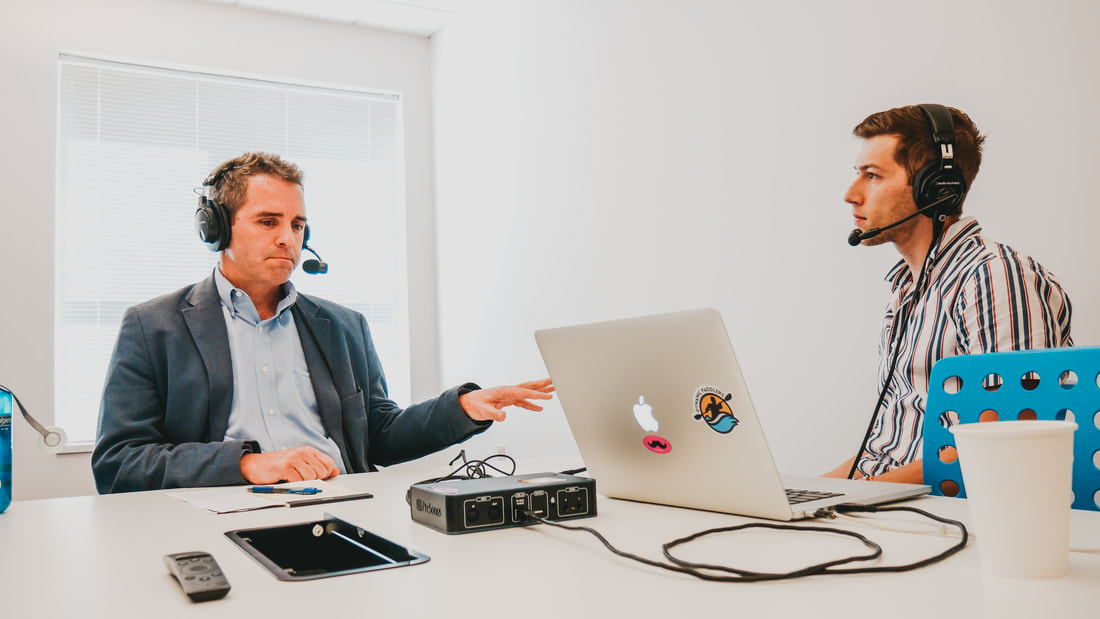

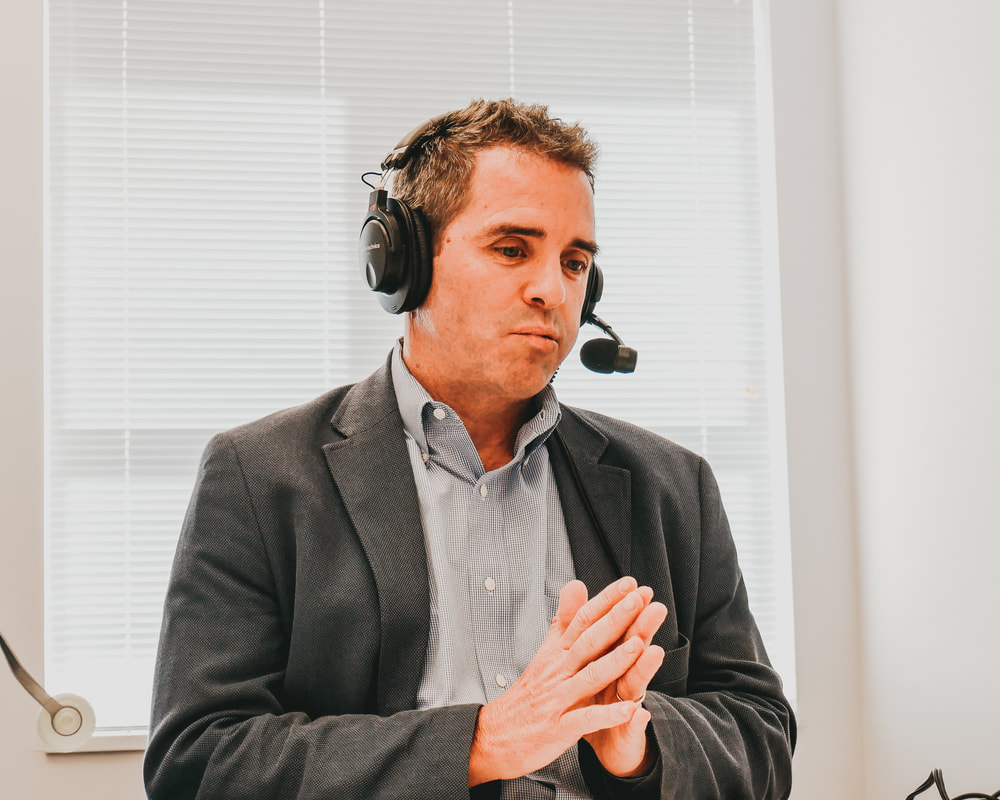
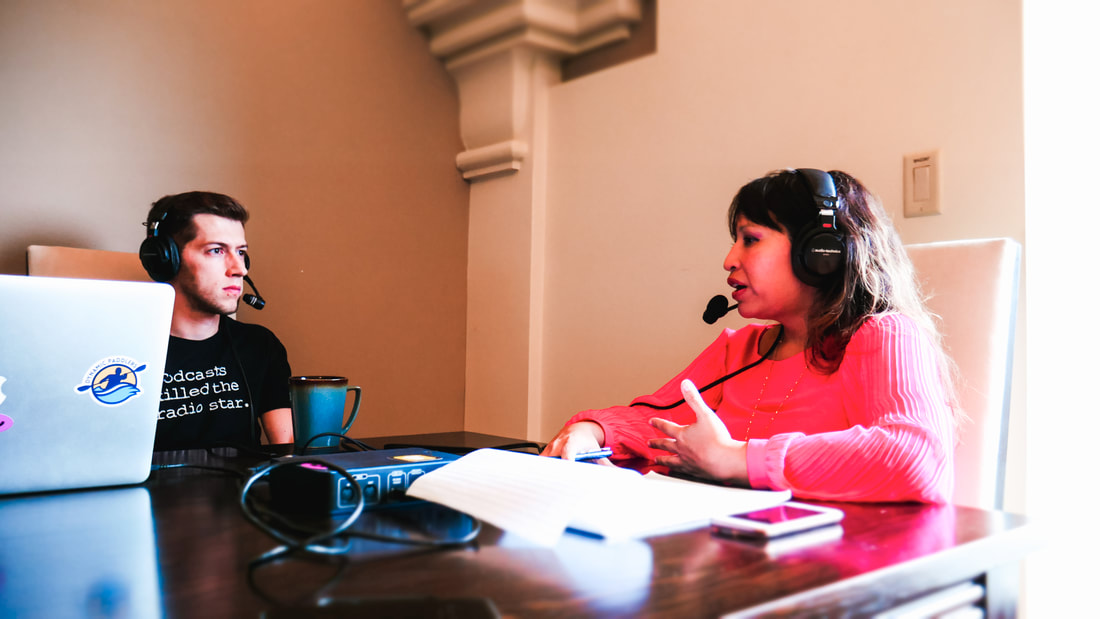
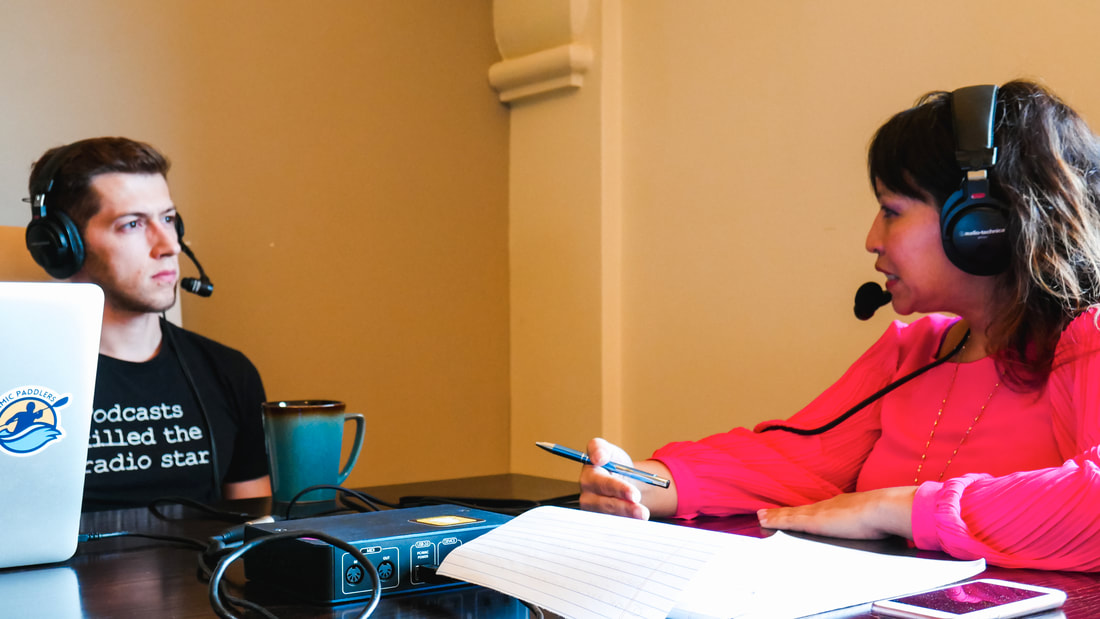
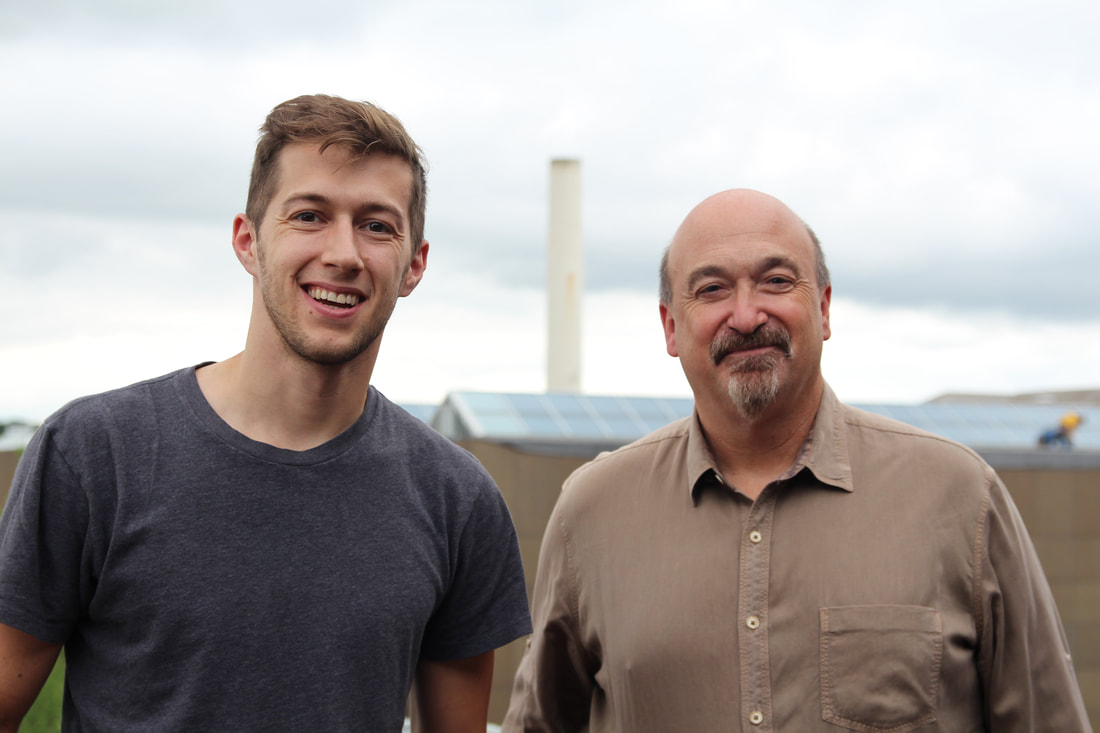
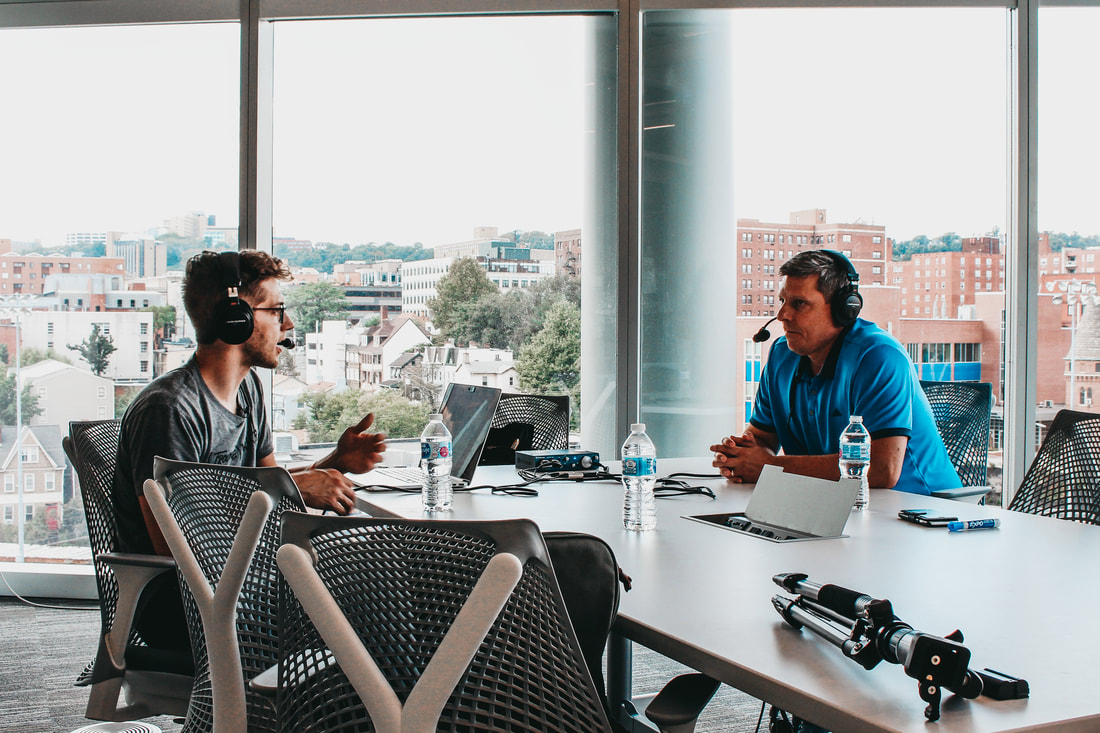
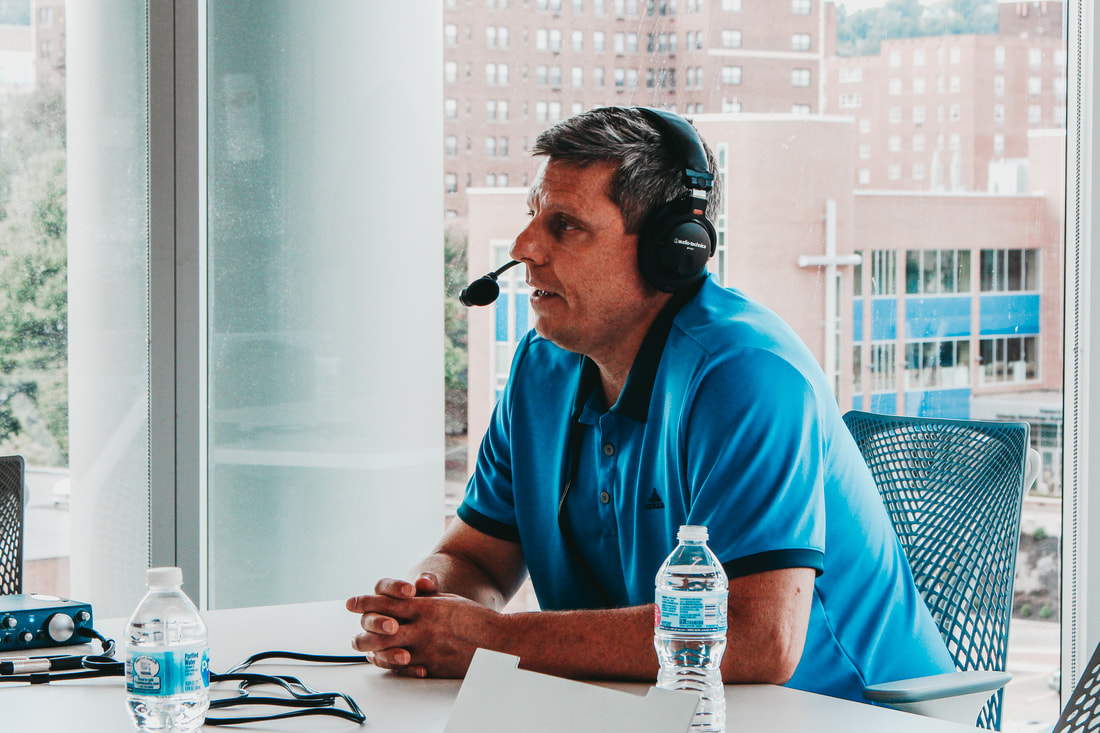



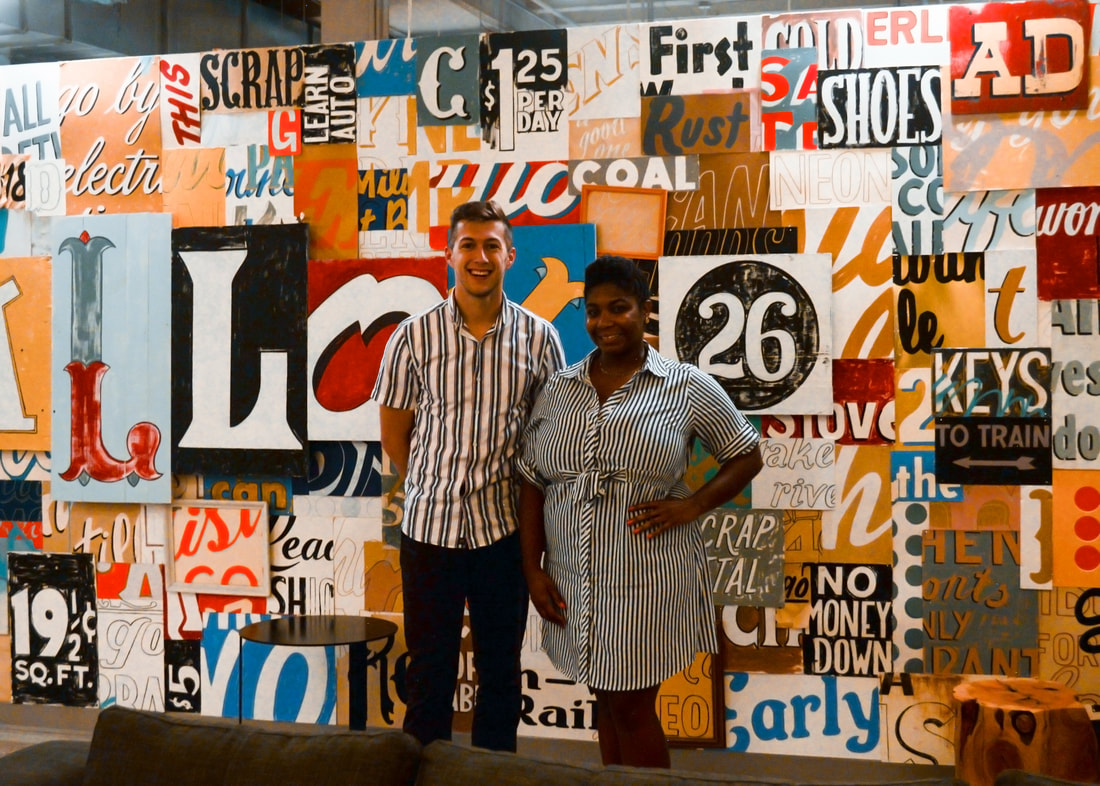


 RSS Feed
RSS Feed